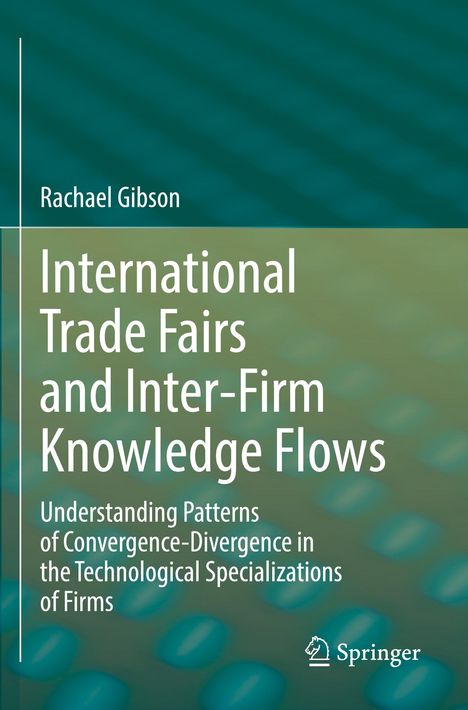Rachael Gibson: International Trade Fairs and Inter-Firm Knowledge Flows
International Trade Fairs and Inter-Firm Knowledge Flows
Buch
- Understanding Patterns of Convergence-Divergence in the Technological Specializations of Firms
lieferbar innerhalb 2-3 Wochen
(soweit verfügbar beim Lieferanten)
(soweit verfügbar beim Lieferanten)
EUR 153,32*
Verlängerter Rückgabezeitraum bis 31. Januar 2025
Alle zur Rückgabe berechtigten Produkte, die zwischen dem 1. bis 31. Dezember 2024 gekauft wurden, können bis zum 31. Januar 2025 zurückgegeben werden.
- Springer International Publishing, 01/2024
- Einband: Kartoniert / Broschiert, Paperback
- Sprache: Englisch
- ISBN-13: 9783031205590
- Bestellnummer: 11728818
- Umfang: 228 Seiten
- Nummer der Auflage: 24001
- Auflage: 1st ed. 2022
- Gewicht: 353 g
- Maße: 235 x 155 mm
- Stärke: 13 mm
- Erscheinungstermin: 4.1.2024
Achtung: Artikel ist nicht in deutscher Sprache!
Weitere Ausgaben von International Trade Fairs and Inter-Firm Knowledge Flows
Klappentext
Against a backdrop of economic uncertainty caused by a shift toward protectionism and the COVID-19 pandemic among other issues, this book suggests that international trade fairs (ITFs) represent a vital source of economic dynamism that can support national and regional economies by creating opportunities for firms to access new markets, network with key actors in their industry or value chain, and tap into valuable external knowledge flows regarding new technologies and innovations. Author Rachael Gibson argues that ITFs have become crucial nodes in the global political economy, driving global economic dynamics and mediating differences between capitalist economies regarding their technological and institutional practices and conditions. In this way, ITFs represent a decisive mechanism by which distinct national patterns of technological specialization may converge or diverge.Trade fairs represent important platforms for networking, interactive learning, and knowledge exchange because they foster intense interactions among actors despite spatial boundaries. ITFs also tend to be organized according to a specific technological or industry focus, which means that they can facilitate interactions between firms from different capitalist varieties. Through the diffusion of state-of-the-art knowledge, ITFs may, thus, serve as drivers of economic globalization, challenging the continuation of distinct capitalist varieties by enabling cross-system convergence regarding the technological specializations of firms. Yet, it is clear that countries have retained competitive advantages in specific industries and that full convergence has not taken place. This book explores this puzzle.


